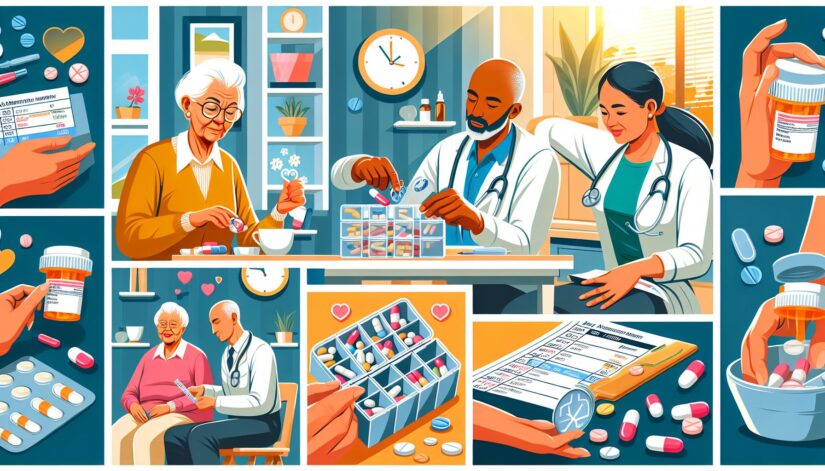As we age, our bodies undergo numerous changes that can often lead to various health issues and conditions. With the advancement of medical science, we are now able to manage these conditions effectively through the use of medication. However, for elderly individuals, managing medication can be challenging due to a variety of factors. It is crucial for their well-being and overall health that they receive proper medication management. In this article, we will explore the importance of proper medication management for elderly people.
The complexity of medication regimens
As we age, our bodies become more susceptible to different illnesses, necessitating the prescription of multiple medications. Elderly individuals often find themselves overwhelmed with the number of pills they need to take daily, as well as the time-sensitive schedules that must be adhered to. Furthermore, medications may need to be taken with or without meals, and the possibility of drug interactions is always a concern. These complexities can lead to confusion and mistakes when managing medication.
Increased risk of medication errors
The elderly population is particularly vulnerable to medication errors due to a variety of reasons. Age-related cognitive decline, impaired memory, and other mental health conditions are common in elderly individuals, making it challenging for them to remember which medications they need to take and when. Additionally, elderly individuals may have difficulty properly reading medication labels due to declining eyesight, further increasing the risk of errors. Such mistakes can have severe consequences, including adverse drug reactions or even hospitalization.
The role of health professionals
Proper medication management for elderly individuals requires the involvement of various healthcare professionals. Geriatric doctors, pharmacists, and caregivers all play critical roles in ensuring that the correct medications are prescribed, dispensed, and administered. Geriatric doctors specialize in the unique healthcare needs of older adults, tailoring medication regimens to minimize the potential for adverse effects or drug interactions. Pharmacists act as a crucial resource, providing guidance on medication administration and offering advice on managing and organizing medications. Caregivers, whether family members or home healthcare professionals, support the elderly in adhering to medication schedules and help identify any potential issues.
Techniques for effective medication management
Several techniques can assist elderly individuals in managing their medications more effectively. First and foremost, using a pill organizer can help to ensure the correct medications are taken at the appropriate times. Pill organizers range from simple daily compartments to advanced models with alarms and reminders. Secondly, it is important to maintain an up-to-date and comprehensive list of all medications being taken, including dosage instructions and prescribing doctors. Regularly reviewing this list with healthcare professionals can help ensure its accuracy and minimize the risk of drug interactions. Lastly, enlisting the support of a trusted caregiver or family member can greatly ease the burden of managing medication.
Conclusion
Proper medication management is vital for the elderly population to ensure their well-being and overall health. Elderly individuals face unique challenges in managing their medications due to complex regimens, increased risk of errors, and age-related factors affecting cognitive abilities. However, with the involvement of healthcare professionals and implementing effective techniques, the potential for medication errors can be significantly reduced. By prioritizing medication management, we can help improve the quality of life for our elderly loved ones.
